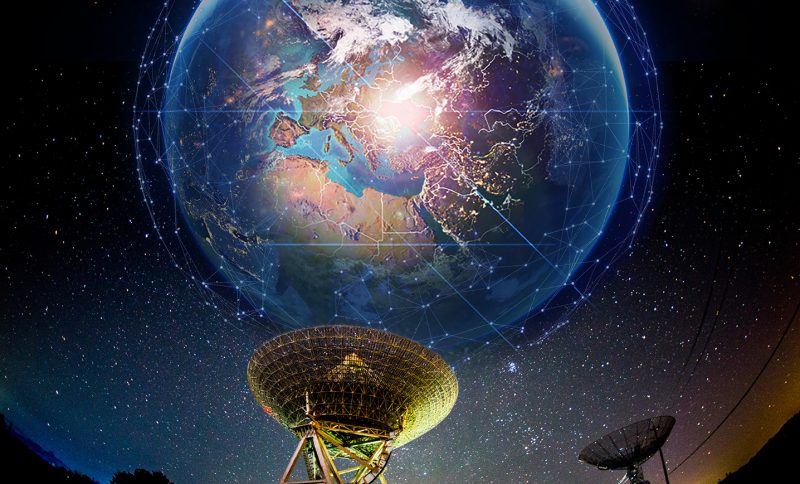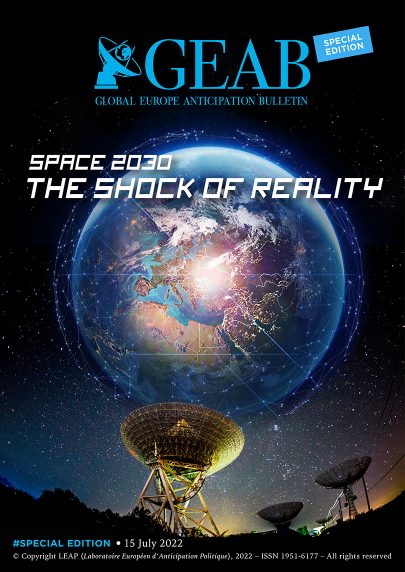GEAB July 2022

This September, NASA’s Psyche spacecraft will take off from Cape Canaveral to study the asteroid with the same name and the metals littering its surface. Behind the science, there is this dream of asteroid mining. This is an example of the Space Psyche of tomorrow: building an economy the resources of which are not terrestrial. We are just beginning to see the space economy blossom, poised to grow exponentially, inhabited by a conqueror soul.
Yet we detect the onset of complications, a clash of realities embodied in a single phrase that is repeated with every failure: Space is Hard. Nevertheless, the failures of Howard Hughes or Concorde have not prevented the construction of an air economy, just as shipwrecks have not managed to stop the sea economy. If Elon Musk fails in his colonisation of Mars, his dream and life’s work will not have prevented making space accessible, with even more concrete applications than his wild promises.
And Elon Musk is not alone; other titans will clash, and the space economy will undergo Darwinism leaving a few survivors to share the bulk of the pie. Bezos, China, the European Union, Musk, the US Space Force collide and face the very terrestrial realities of war, cost, and even rejuvenation with this new generation trying to take over and draw a new image for space.
Nature still has many surprises in store for us, even in space where it seems non-existent. We need to see what room there is for safety, and beyond that, for our natural protections against the dangers of the void and the power of physics. The economy of space remains the most enlightened and wise compared to air and sea related tragedies. But we have also become extremely dependent on it, in flagrant breach of humanity’s trust in its tools and technologies.
Only a few decades ago, the idea of a space economy was considered utopian. Today, the wealth beyond the Karman Line motivates new conquests, following the same Psyche as Amerigo Vespucci, or rather the one who financed his expedition to America.
This special issue was produced with the contribution of Daniel Chrétien, a French journalist on space affairs.
__________________
Join the GEAB Community on LinkedIn for more discussions on this topic.

Young, even infant, the space market has grown by 70% since 2010 and is expected to reach a trillion dollars in annual revenues by 2040. One might think that the [...]
The revolution in orbit access prices and the standardisation of satellite construction are enabling the advent of a new space economy. Space is becoming more democratic and is gradually following [...]
Between the desire for supremacy and the wish to use space as a catalyst for a new economy, the vision that nations have of their place in space is remarkably [...]

Comments